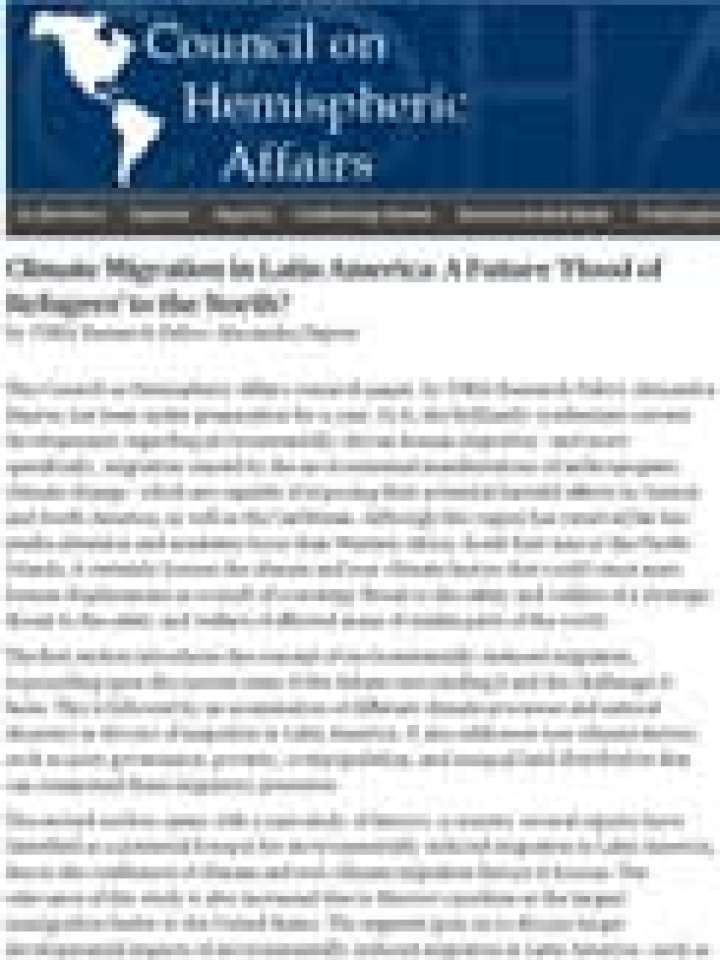Climate migration in Latin America: a future ‘flood of refugees’ to the North?
This research paper synthesizes the current developments regarding environmentally-driven human migration –and more specifically, migration caused by the environmental manifestations of anthropogenic climate change– seeking to expose its potential harmful effects in Central and South America, as well as the Caribbean.
The first section introduces the concept of environmentally-induced migration, expounding upon the current state of the debate that surrounds it and the challenges it faces. This is followed by an examination of different climate processes and natural disasters as drivers of migration in Latin America, which notably include sea level rise, intensified drought or rainfall, and the increasing attracted recurrence and strength of natural hazards such as hurricanes. It also addresses non-climate factors such as poor governance, poverty, overpopulation, and unequal land distribution that can compound these migratory pressures.
The second segment identifies Mexico as an environmentally induced migration ‘hotspot’, discusses development impacts in Latin America, and speculates on potential responses from Washington.
Explore further
